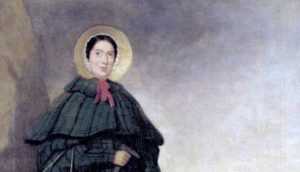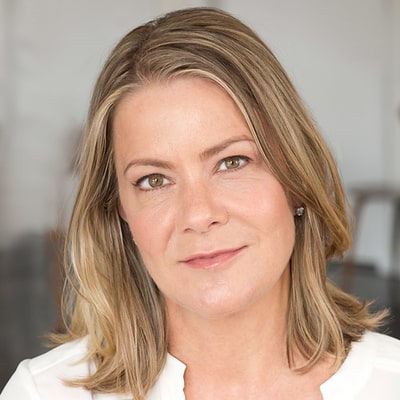Ann Hopkins was an attorney who bravely pursued a landmark American employment discrimination case after being denied partnership at a law firm for her gender. Told she was “overly aggressive, unduly harsh, difficult to work with,” and “needed a course in charm school,” Ann fought back by suing the firm for sex discrimination. The landmark case had an important effect on discrimination and diversity in the industry.
In 1978, Ann Hopkins accepted a job in the northern Virginia office of Price Waterhouse, one of the “Big Eight” global accounting firms. Hopkins joined the firm as a consultant in its Office of Government Services, overseeing large-scale technology projects for government clients. With a master’s in mathematics, a stint at IBM building computer systems for NASA, and close to four years at Touche Ross, another of the Big Eight, Hopkins was a veteran of male-dominated environments.
She never gave her minority status much thought, though. A self-described Army brat from Texas, she grasped at an early age how to hit the ground running, even when she was the new kid in town. Spending four years at an all-women’s college also was formative. According to Hopkins,
“I learned to depend on myself and on the analytical integrity of an answer to a question or a solution to a problem before I was taught to depend on or defer to members of the opposite sex or their point of view.”
This didn’t mean she felt any affinity for the burgeoning feminist movement, though. “I have never given a thought to the women’s movement,” she later said. “I just kind of missed it.” Hopkins was raised wearing white gloves and attending debutante balls, but her personal style was, in her words, “wash and wear.” She also developed a fondness for motorcycles—even while wearing a suit and Ferragamo pumps, as she did when riding her Yamaha 175 to her first interview at Touche Ross in 1974.
Over the next five years at Price Waterhouse, Hopkins set about positioning herself for partnership. Moving from consultant to senior manager, she amassed an impressive record, including winning roughly $40 million in contracts from the U.S. Departments of State and Agriculture. The Office of Government Services leadership later described this work as being “carried out virtually at the partner level.”
By the time she was put forward for promotion by the OGS in the summer of 1982, Hopkins had generated more business and billed more hours than any of the other eighty-seven candidates—all of them men.
In nominating Hopkins, the OGS partners wrote:
In her five years at the firm, she has demonstrated conclusively that she has the capacity and the capability to contribute significantly to the growth and profitability of the firm. Her strong character, independence and integrity are well-recognized by her clients and her peers. Ms. Hopkins has outstanding oral and written communication skills. She has a good business sense, an ability to grasp and handle quickly the most complex issues, and strong leadership qualities.
At the time of Hopkins’s candidacy, just seven out of the firm’s 662 partners were women—barely more than 1 percent. None of them sat on the Admissions Committee or Policy Board.
Price Waterhouse was not alone in its lack of gender diversity. The Big Eight were notoriously slow to accept women into their top ranks. As one industry expert told The New York Times in the late 1980s, “The accounting firms are only now coming to the conclusion that women are as capable as men. They simply have not looked at women with the same open eye that they view men.” At Deloitte Haskins & Sells, the firm with the best record of promoting women as of 1988, fewer than 6 percent of its partners —just 48 out of the firm’s 850—were women. Arthur Andersen’s partnership was just 3 percent female. But Price Waterhouse had the lowest numbers of the group. By the late 1980s, five years after Hopkins’s candidacy, the number of women partners had crept up to a mere 2 percent.
In April 1983, Lew Krulwich, an OGS senior partner, summoned Hopkins to his downtown Washington office to deliver the news.
Although more than half the nominees had been promoted, Hopkins wasn’t one of them. The Admissions Committee instead had recommended a “hold” on her candidacy, and the Policy Board had agreed. It wasn’t an outright denial, but Hopkins would have to wait for the next year’s cycle to begin, get renominated by OGS, and then go through the firm-wide evaluation process all over again.
Krulwich didn’t have many answers for what had gone wrong, except for what he had been told by Hopkins’s mentor in OGS, Tom Beyer, who was on vacation in the Cayman Islands: Hopkins had “consistently irritated senior partners of the firm.” When Beyer returned, that was all he could tell Hopkins too.
A few days later, she flew to New York to meet with the firm’s senior partner, Joe Connor, to get more details.
Hopkins “listened in horror” as he read the remarks of the reviewers who had recommended denying or putting a hold on her application for partnership. None concerned the business she had generated or the clients she had managed. They were only about her interpersonal skills. Hopkins needed “a course in charm school.” She was “overly aggressive, unduly harsh, difficult to work with and impatient with staff” and “overcompensated for being a woman.”
Even her supporters’ remarks lent credence to this unflattering picture. One wrote that Hopkins had “matured from a tough-talking somewhat masculine hard-nosed manager to an authoritative, formidable, but much more appealing lady partner candidate.” Another acknowledged, “‘Ann has a clearly different personality,’” but “‘many male partners are worse than Ann (language and tough personality).’” The reviewer surmised that critics were focusing on her profanity “‘because it’s a lady using foul language.’” Another conceded that Hopkins initially came across as “macho,” but said, “‘if you get around the personality thing she’s at the top of the list or way above average.’”
Back in Washington, she arranged a meeting with Tom Beyer, head partner of OGS and her chief champion, to discuss how to best position her candidacy. His advice? “Walk more femininely, talk more femininely, dress more femininely, wear make-up, have your hair styled, and wear jewelry.”
[bctt tweet=”Ann Hopkins was advised to ‘walk more femininely’ in order to make partner at her law firm.” username=”womeninhistory”]
Hopkins later wrote of this period, “I was miserable, depressed, furious, disconsolate, and inconsolable in cycles.” Her “normally unshakeable confidence,” she said, “had been destroyed.
Four months later, Hopkins learned that two of the OGS partners who previously had supported her partnership had changed their minds. There wasn’t going to be a second time around, because she wasn’t even going to be nominated by her own department.
Meanwhile, the men who had been placed on hold along with Hopkins fared much better. Fifteen out of the nineteen were promoted to partner that year.
Hopkins contacted a friend who gave her a list of attorneys, and she soon met with Doug Huron. After hearing the basics of Hopkins’s career at Price Waterhouse and the events leading up to the partnership denial, Huron wanted to know more about the overall environment at the firm. Hopkins realized that she hadn’t given much thought to whether it was hostile to women. “I was either naïve or I wasn’t paying attention,” she later reflected.
Still, Huron learned enough to conclude that Hopkins had experienced discrimination. There was something awry when a candidate who had brought in $40 million of business, won high marks from her clients, and earned the unanimous support of her department was turned down because eight men who barely knew her didn’t like her personality.
For her part, Hopkins was still getting used to the idea that “discrimination” even described her situation; she was still calling her partnership denial just a “bad business decision.”
“The only context I had for discrimination and civil rights was what had taken place in Gadsden, Selma, Birmingham, and the like in my college years,” she admitted. “The fact that the Civil Rights Act of 1964 might apply to me had only recently come to the forefront of my conscious thinking.”
It wasn’t entirely clear in the spring of 1983 that Title VII, written to protect employees from employers’ bias, would cover a denial of a partnership.
Doug Huron hedged his bets. He filed a lawsuit in DC Superior Court alleging violations of the local law against sex discrimination while also filing a charge with the EEOC to preserve the right to eventually file a Title VII lawsuit in federal court.

In the meantime, Hopkins was desperate to leave Price Waterhouse, but Huron told her to hold tight; if she quit, she couldn’t recover any future lost wages unless she could claim she had been “constructively discharged.” Constructive discharge was tough to prove. The prevailing legal standard required a plaintiff to show that her working conditions had been made so “intolerable” that she had to leave. Only then could she quit and still be treated, by law, as if she had been fired—which would entitle her to recover damages for losing her job. Hopkins may have been miserable about the nosedive her career had taken at Price Waterhouse, but that wasn’t enough to make the job “intolerable.” It was admittedly a murky line. Hopkins waited for Huron to tell her she had crossed it.
It only took four more months. Soon after Hopkins consulted Huron, her mentor Tom Beyer told her she had three options: Get a new job, transfer to a different department within Price Waterhouse, or—Beyer’s top recommendation—forget about making partner and accept a second-tier existence as a “career manager” at the firm.
Things deteriorated further when she got the results of a “quality control review” of her past work that, for the first time in her tenure, gave her low marks. Then one of the OGS partners who had withdrawn his support for Hopkins’s renewed partnership bid began inserting himself into her newest project for the State Department, subjecting it to repeated, fine-tooth-comb audits. She returned from a work trip abroad to find her belongings packed up and moved to a new office, though no one could tell her where that was. By December 1983, Hopkins “was barely hanging on by my psychological fingernails” when Huron gave her the okay. In his judgment, she had reached the “intolerable” threshold that would qualify her for a constructive discharge claim. Hopkins resigned four days before Christmas.
A few months later, the Supreme Court unanimously ruled that Title VII did extend to decisions denying partnership. Huron obtained a right-to-sue notice from the EEOC and headed to federal court. Hopkins v. Price Waterhouse was filed in U.S. District Court for the District of Columbia in September 1984. In addition to seeking reimbursement of lost wages and attorneys’ fees, the complaint asked the court for an order making Ann Hopkins a partner at Price Waterhouse.
After finally making partner, Ann Hopkins’ team at the firm became one of the most profitable and diverse in the company.
Recommended Reading
This post is adapted from Gillian Thomas’ book, Because of Sex: One Law, Ten Cases, and Fifty Years That Changed American Women’s Lives at Work:
Gillian is a Senior Staff Attorney with the American Civil Liberties Union’s Women’s Rights Project, and the author of Because of Sex: One Law, Ten Cases, and Fifty Years That Changed American Women’s Lives at Work.







Price Waterhouse is not a law firm. They are an accounting firm.